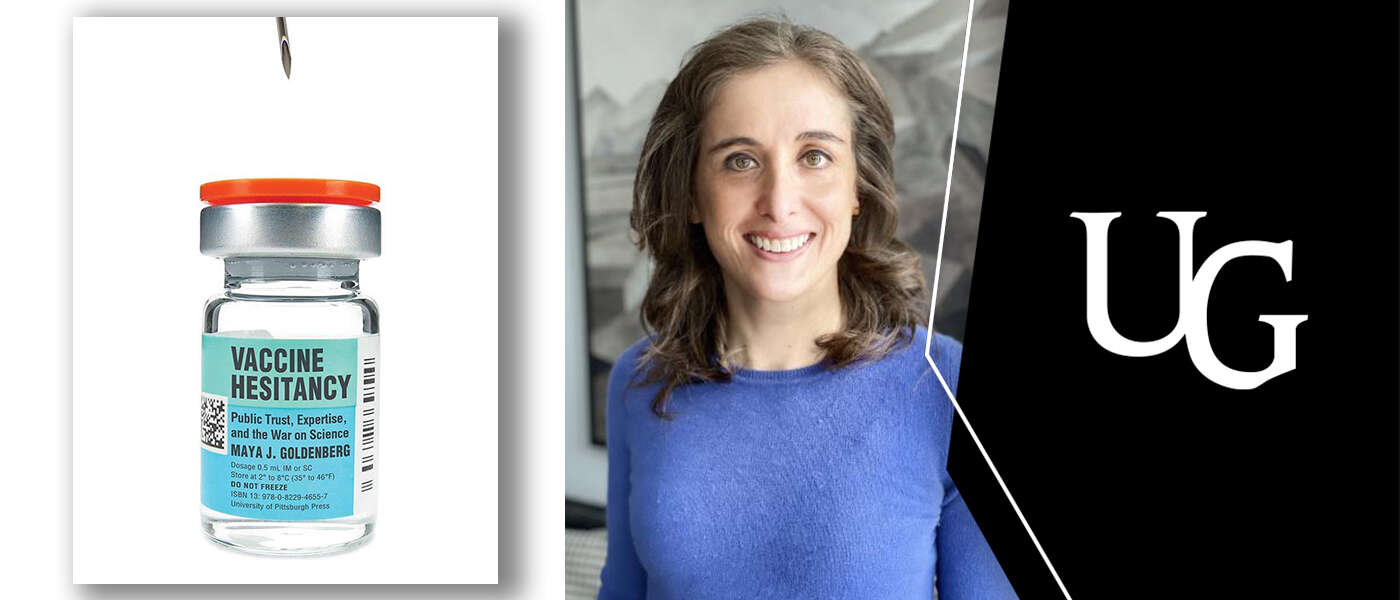
What makes someone mistrust vaccines or even campaign vociferously against them?
Those are some of the questions Dr. Maya Goldenberg, a professor in the Department of Philosophy, investigates in her new book, Vaccine Hesitancy: Public Trust, Expertise, and the War on Science.
Goldenberg has long specialized in the philosophy of science and medicine, focusing much of her recent research on why some people become wary of science and refuse vaccines.
Goldenberg explains that she started the research having unwittingly accepted the conventional thinking that vaccine hesitators avoided vaccines because they didn’t understand the science or were missing key scientific information. She soon realized that her initial research question (“what evidence will convince vaccine hesitators?”) was the wrong one.
She learned those who feared vaccines were not complicit in a “war on science.” Rather, their hesitancy was rooted in mistrust of the institutions that structure civic life: resistance to vaccines is their demand for institutions to respond to issues of justice and equity.
Goldenberg’s research focuses on vaccine hesitancy among parents in the industrialized North. She had nearly finished the book when the COVID-19 pandemic was declared. But the broad themes of public trust in scientific institutions and the problem of expertise are as relevant as ever for understanding our present circumstances, including COVID vaccine hesitancy.
Goldenberg was recently interviewed on CBC Radio’s Fresh Air about the new book.
Vaccine Hesitancy: Public Trust, Expertise, and the War on Science is published by University of Pittsburgh Press and is available everywhere.
